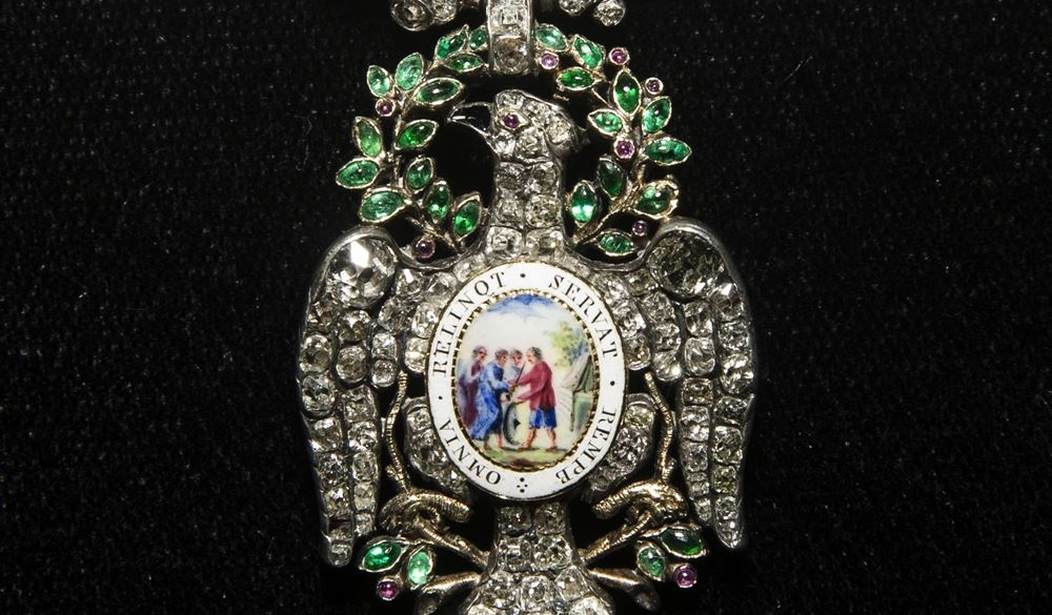If it is true that every country has a vocation, what is the vocation of the United States? A vocation is a calling, something a person or place is called to be. If you fail to respond to this call or aren’t listening to hear it, you may well fail to become who and what you truly are. A square peg always trying to fit into a round hole.
Some even go so far as to say that countries, cities, and towns have a calling. We even use the phrase the soul of a city or place. This soul is that immaterial something that sets them apart and gives them a mission. One may think of St. Catherine of Siena, who demanded that the pope leave France and return to Rome. At the time, Rome was a decayed has-been city with a population of no more than 25,000. But it was the place where St. Peter had been crucified. It had a mission.
Joan of Arc felt called by God to restore France. A great nation arose from a kingdom no bigger than a few counties. As Winston Churchill noted in one of his histories, You may disregard her voices, but from the moment Joan of Arc came on the scene, the English presence on the continent did nothing but recede until it was completely gone. Having fulfilled her vocation and been betrayed by her allies, she completed her vocation by being burned at the stake.
How many of our Founding Fathers, rather than riding off in the sunset wealthy and happy, were ruined by the war and its aftermath or died in the fight? Yes, fulfilling the vocation of a country can be difficult.
All this flies in the face of the progressive belief that we can invent and reinvent anything, ranging from our gender to our country. The idea that we are called to be who we really are, rather than some ever-morphing cartoon caricature, frightens them. It all comes down to the fear of having to live up to a greater, higher standard. Freedom is not the right to flee from reality and the restraint of responsibility. True freedom tears off the many false masks that hide the reality of what we are called to become. It is something organic to our nature.
What are we called to be as a nation? What is the “unum” in our “e pluribus unum”?
If you read the headlines, you might be tempted to say we are called to wage utopian wars in far-off nations. That our goal is to create a worldwide, borderless, welfare state funded by US taxpayers. And that the government’s job is to create a system where those in power can ignore the law. That they can favor their friends while using the power of the state to crush their enemies and demonize their opposition in the name of some abstract “common good.”
It seems America has taken every failed policy of Western Europe in the last one hundred years and decided to implement them in a patchwork quilt of chaos. Go back to World War I. The Russian Empire fell when it foolishly decided to enter a war it had no business taking part in, all in the name of some ethnic abstraction called Pan-Slavism. Their Red successors decided its mission was to spread a Communist abstraction with its errors about the human person and economics. These traveled around the world, destroying everything they touched.
The German Empire fell when it decided to join with its Austro-Hungarian neighbors in a petty squabble in the Balkans, only to be beaten in a war that lost its empire and spawned new chaos. Inflation and degeneracy engulfed the land, followed by a Darwinistic survival of the fittest eugenic ethic that overplayed a weak military hand to destruction in the Second World War.
Britain opted to fight two balance-of-power wars in Europe that shredded its worldwide empire and impoverished its future. And France, once far larger than Germany, had long before stopped having children. They then wasted millions of young men in a war with a larger Germany. They have yet to reclaim their once-vaunted place in the world. And Turkey’s new democratic government decided to pick the winner of World War I only to bet wrong and have their vast empire destroyed. Italy drove home this point by picking the winning side in World War I, only to be disgruntled enough over the peace to bet on the loser in World War II. Governments are as good at picking winners in war as they are in picking winners in the marketplace.
Until now, the US has avoided the excesses of these same political, economic, and eugenic ideologies. It entered each European war late and came out strong. Are we now to be the tip of the spear in a new round of wars around the world? Is it our national vocation to expend blood and treasure so we can fly the rainbow flag at our embassies in Ukraine, Libya, Iraq, and Afghanistan, or make military promises in Europe and Asia that will weaken us for generations to come? Is the tacit invasion over our Southern border by people whose monthly government welfare costs easily exceed their pay at home mean we have a vocation as the world’s default welfare state?
Louis XVI was generous with money and military aid in our Revolution. It was critical in winning the war, but it cost him his head and his kingdom when the bills had to be paid. Are we engaging in a similar overreaching suicide mission?
What is our national vocation? When settlers from all over Europe came in the great migration of the 1600s as part of Dutch, English, Swedish, and Spanish settlements, is this what they came for? Clearly, they came to be free to work and reap the benefits of that work. They came to raise their families in their own family religious and cultural traditions, unmolested by others. Rather than fighting the old world and its problems, they came to build up a new civilization related to the old world but not embedded in its problems.
By the time of the Revolution, this new civilization had matured to the point where it became the only self-governing republic in the world. A tripartite government, a blend of judicial, executive, and democratic governance, was created to avoid both aristocratic dominance and mob rule. It was designed to prevent persecution of the minority or the disregard of the majority. Its premise was that people would seek virtue in their own lives. Only people that could practice self-control over their own lives could practice the virtue of self-governance on a national scale.
The Revolution’s goal was not to change the old world or conquer it. The American system was to work out our destiny on our patch of earth. Rather than a warrior nation, we were to be an example of work and family responsibility capable of governing and supporting itself. It was to be an example that other countries could emulate as best they could. Leave the slaying of foreign dragons and the pipe dreams of ideological abstractions like those of the French Revolution elsewhere.
RELATED: ‘Do You Want to Be Free?’ The Promise of America on Independence Day
The freedoms to bear arms, speak, publish, and engage in free religious, social, and economic organization were the fence built to ensure this experimental political system didn’t overstep its bounds. In other words, the nation was not to be the same as the political state. The political state was to be just one player among many others and respect the independence of those other spheres. As in the days before the Revolution, foreign states, colonial and local governments could rotate in and out. But they were not the nation. The people were. Their free religious and social associations were to be respected. That liberty is what the world was to emulate, not by force but by example.
That is why the principles of the Revolution have to be deployed anew in each generation. To the Founders, we were called to be like Jerusalem, a city of peace on a hill amidst a world of warring tribes. To do that, it was up to the people to be a nation of free men and women who respected the faith and freedom of their fellow citizens in a system of balanced power to prevent tyranny. In other words, by how Americans organize their lives and the example they give, they are called to promote freedom abroad and avoid the fate at home of that other biblical city, whose darkened soul ended not in celebratory fireworks but in fiery destruction.










Join the conversation as a VIP Member